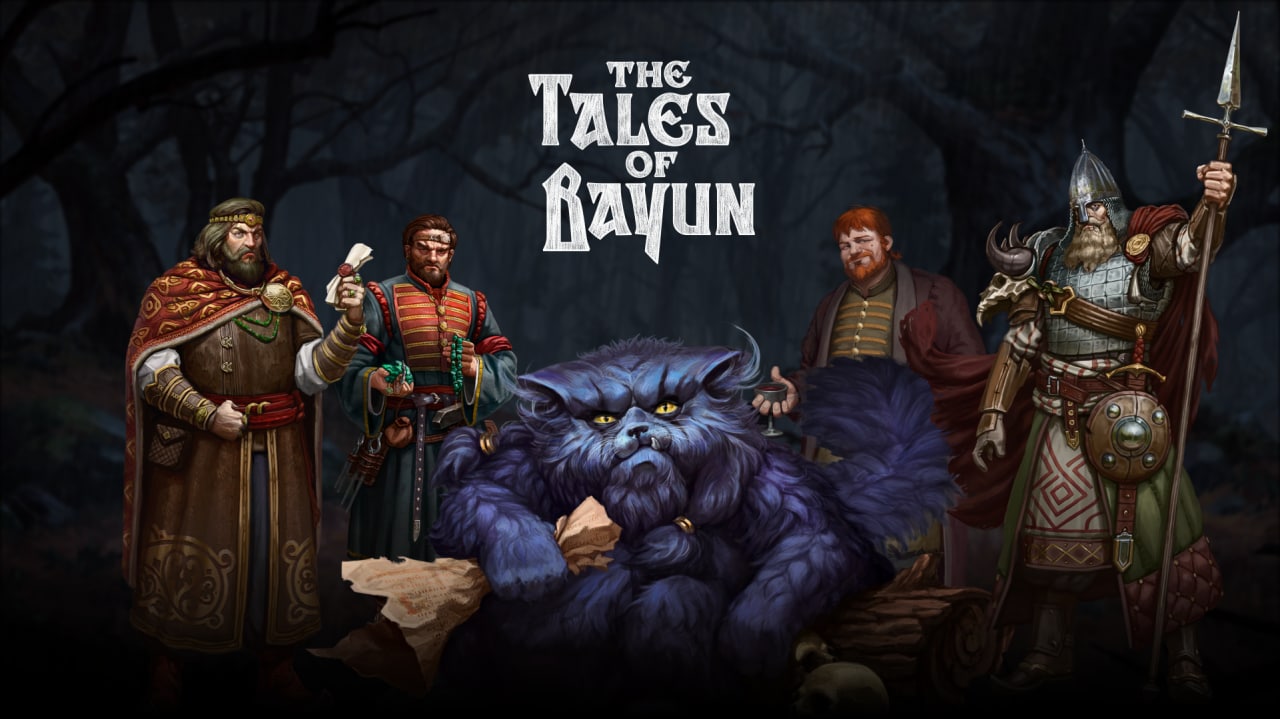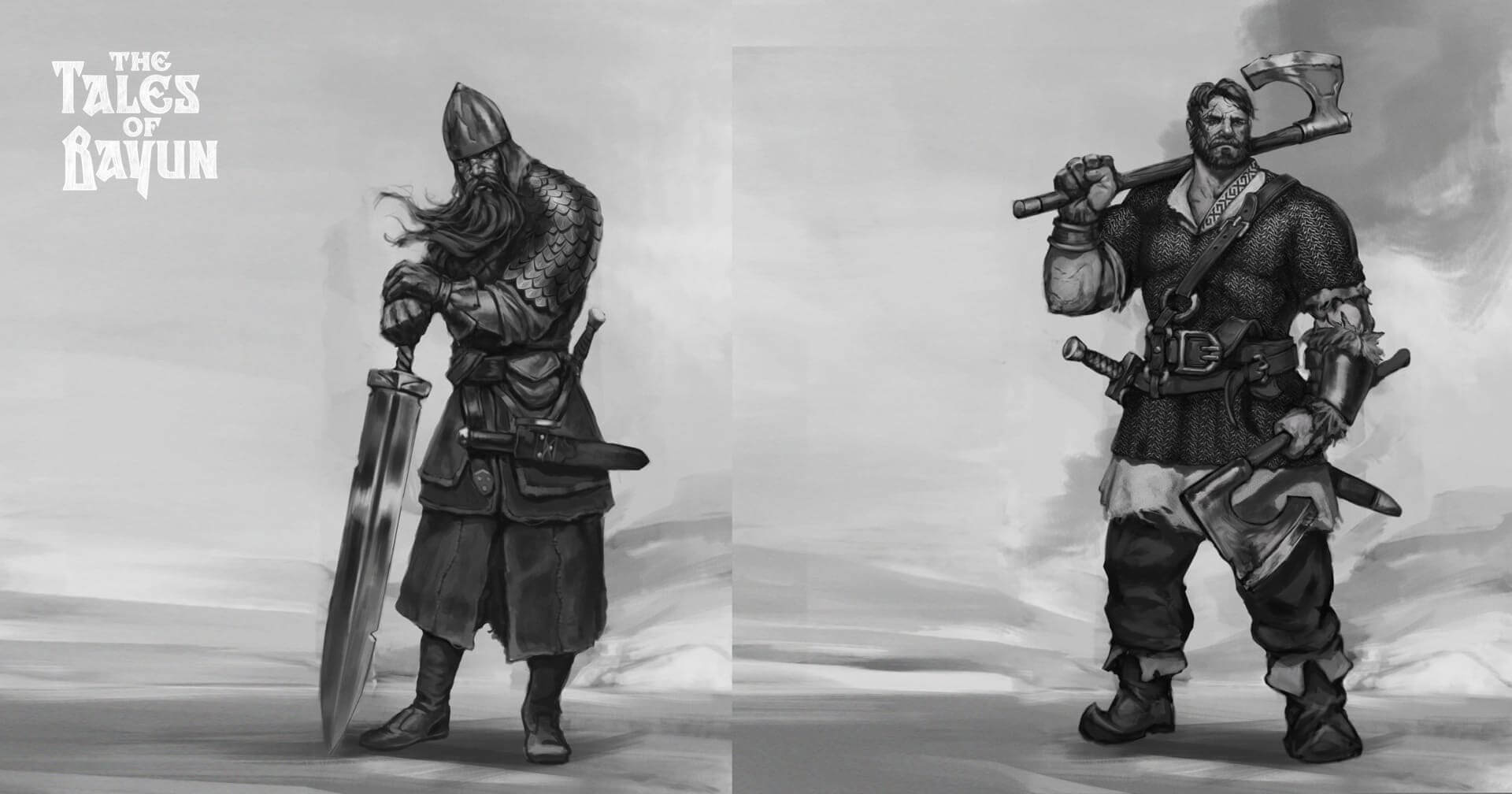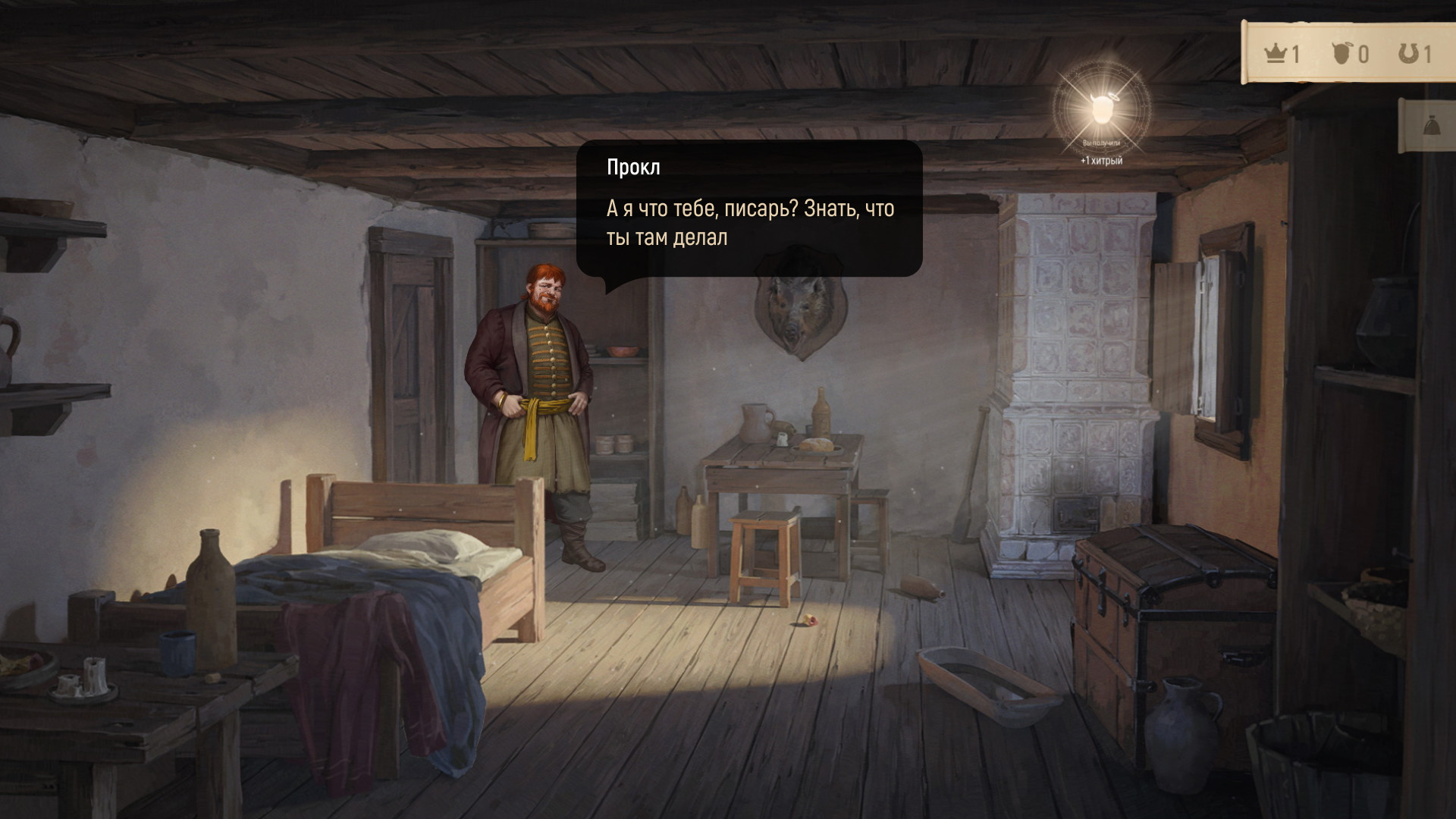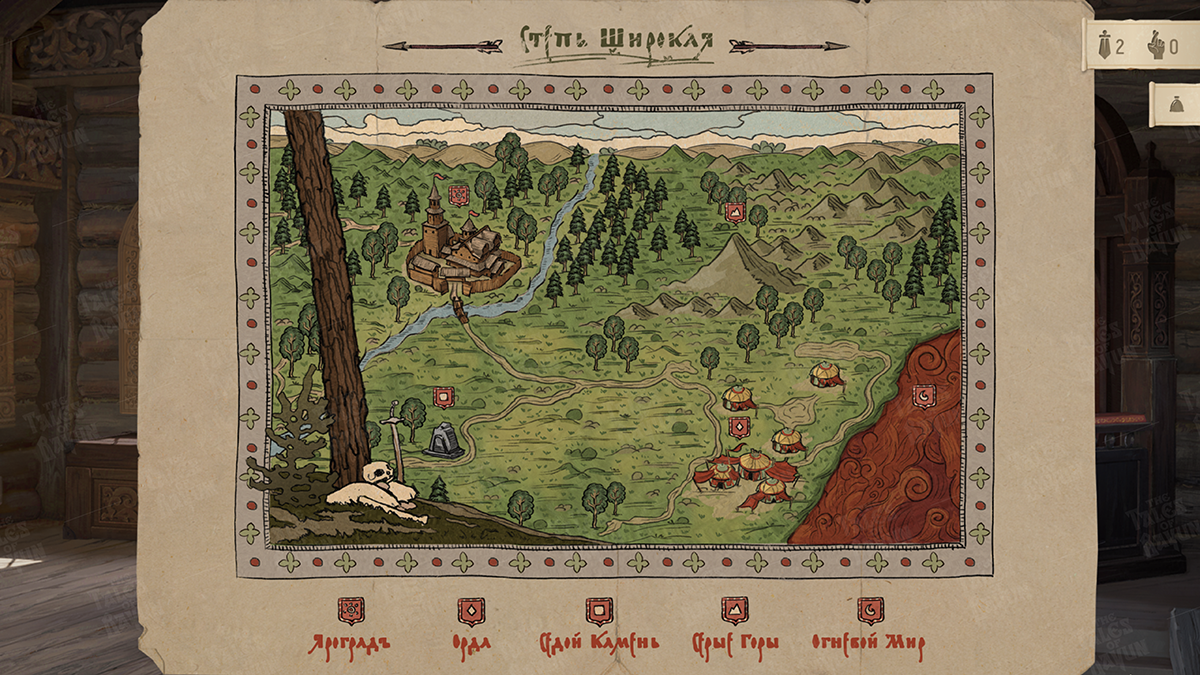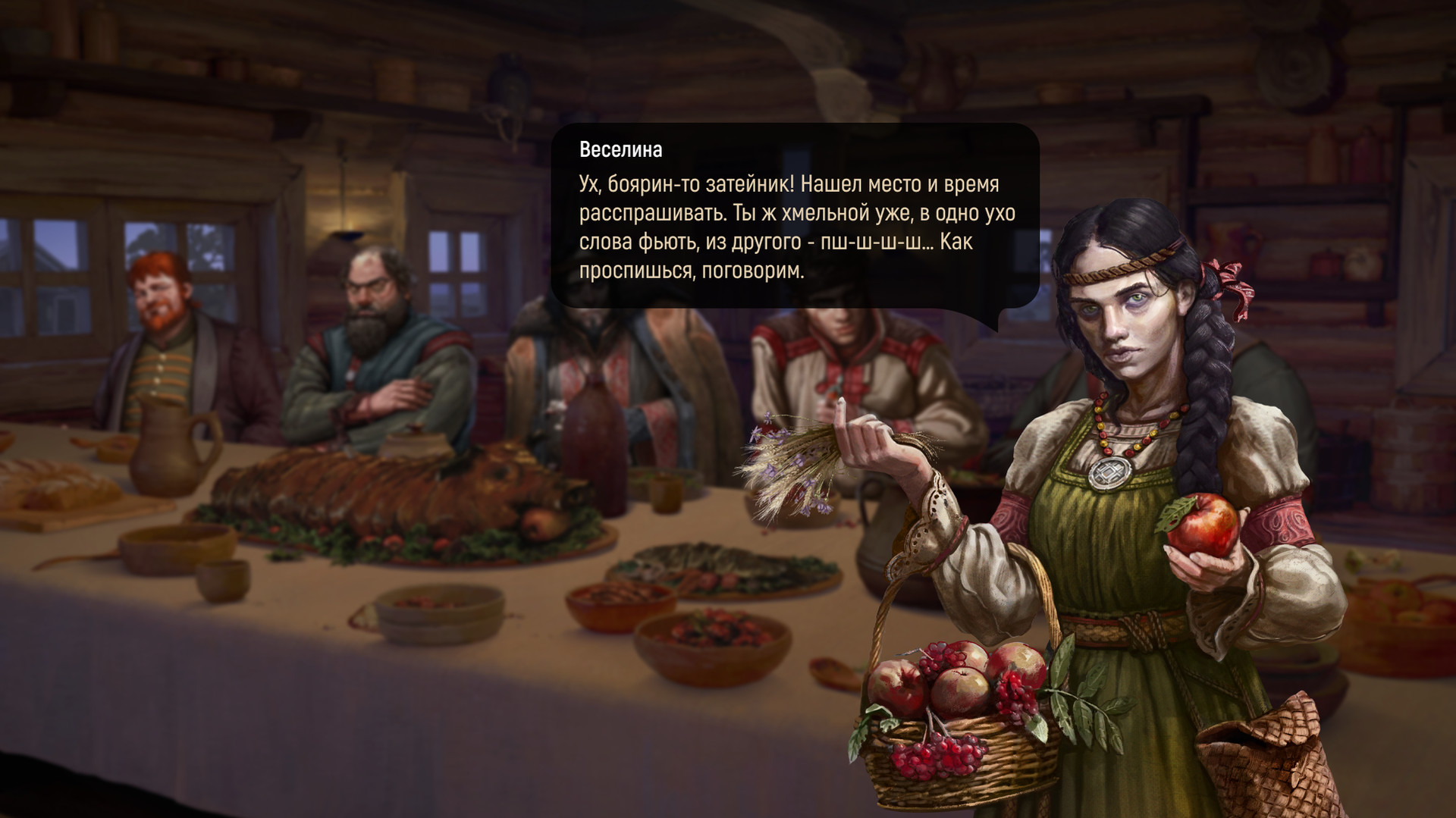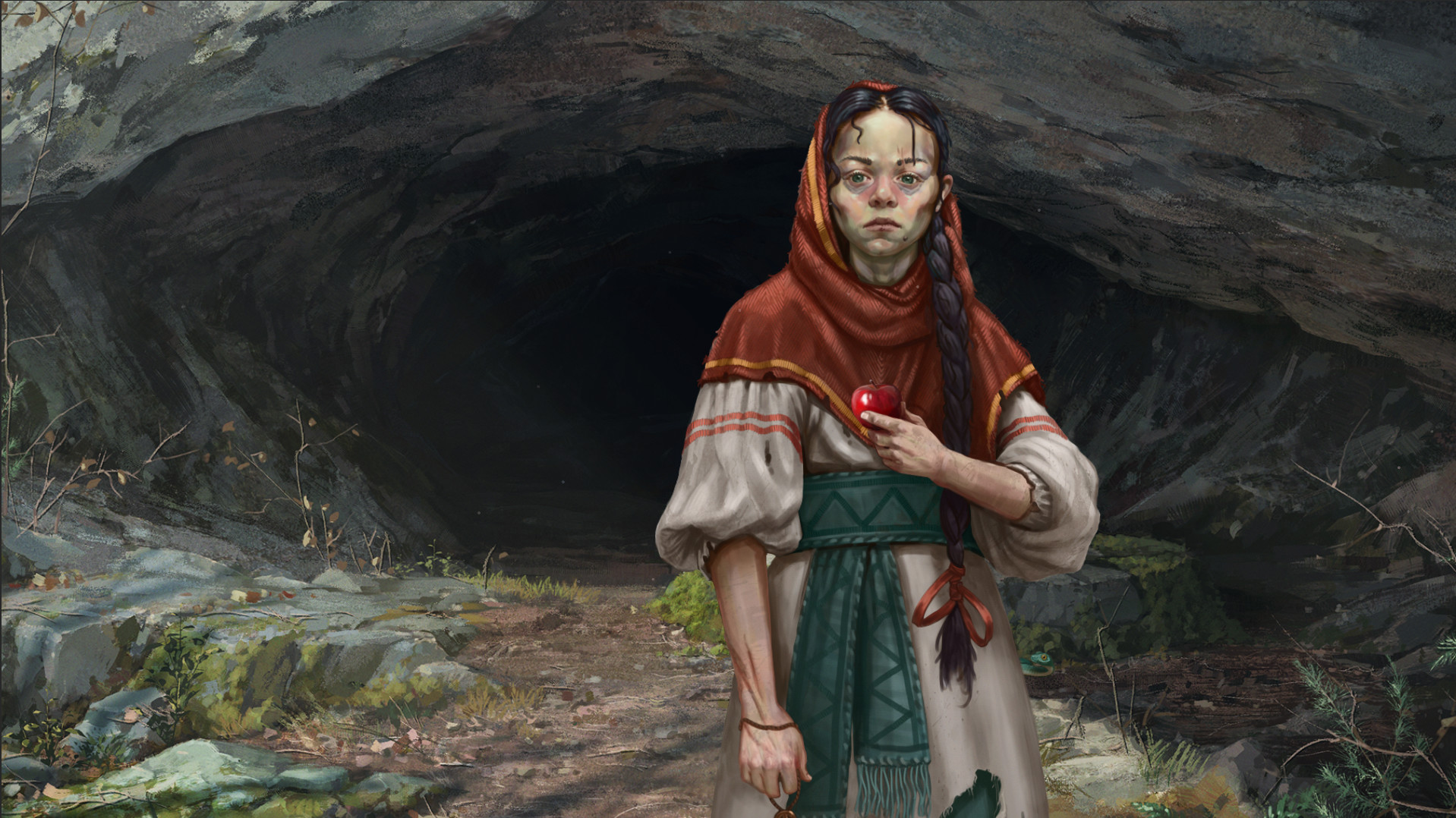The young studio FlyinDogs is preparing to release a narrative novel in the Slavic setting of The Tales of Bayun. We asked its founder Ilya Maksimenko to tell us about the team and the work on the project.
Ilya Maksimenko
Developing a game at your own expense in 2022 is not just like going against the wind. It resembles a hike against the wind in a fog, from where oars periodically appear and hit you on different parts of the body. And sometimes they get hit in the face.
At the same time, our history is developing well so far.
Leaving marketing for development
The Tales of Bayun is the first game project for both me and my business partner Sergey Baulin. Before that, he and I had been engaged in web marketing for more than five years. In particular, I had my own digital agency.
At some point I realized that I no longer want to create websites, launch advertising campaigns. It brings money, gives stability, but not self-satisfaction.
So a year and a half ago I left the agency. With the money I earned in the digital business, Sergey and I engaged in game development. It is important to understand here: this is not a story at all about two guys who were sitting in the kitchen and suddenly decided to make a dream game on a dry ration.
We knew in advance that making games is very expensive and difficult, and the risks are extremely high. There were no pink glasses. We knew perfectly well (and the realization of this still does not leave us) that we could lose all the money.
So we had the appropriate approach: we chose a relatively simple and non-resource-intensive genre (but, importantly, one that we ourselves liked at the same time), calculated the budget and, breaking the pot, launched the studio and the project into development.
We do not set tasks to earn money for The Tales of Bayun (although, of course, we want it to pay off at least). It is more important for us that he helps:
- create a FlyinDogs name as a developer of cool products that people like;
- enter the industry, figure out how everything works here;
- to help attract funding for the next, more ambitious projects.
At the same time, it is also important to me personally that I can be proud of the game. I don’t want to come to the realization in the future, looking back, that my life was spent on routine or working on mediocre projects.
Team
We assembled the team ourselves. Moreover, the first people were found through acquaintances.
We can say that our first acquaintance with game development took place through hiring. And it left a very good impression. Unlike the niche where I used to work, there are only a couple of acquaintances in the gaming industry to start sharing information with you, helping with the search for specialists.
Today we have 14 people working on the game and marketing in different guises. A third of them are partially occupied. Nine frames are fully working on the project at the same time with me.
The employees have a very rich experience. On average, each of them has up to 7-9 years in the industry behind their backs. Most of them came to FlyinDogs from mobile.
It was a pleasure to hire. For each vacancy, we consistently received feedback from many cool specialists. To exaggerate, we put together a core team like this:
- viewed 120 resumes;
- conducted 40 interviews;
- we checked 20 test cases;
- we took 8 people.
For many, it was important that the project was a chamber one, not designed for many years of development.
Game World
We initially took a course on Slavic mythology. There are two reasons for this.
Firstly, the Slavic setting – for all its wealth — is one of the most underrated.
Secondly, he is very close to me. Since childhood I have loved the fairy tales of Afanasyev and Pushkin, stories about heroes and “Evenings on a farm near Dikanka”.
It is very bright, textured, you can’t confuse it with any other. Heroes are devils and healthy men. The surroundings are log cabins and meadows. And there is always a place for cruelty and fatalism.
That’s just the setting we wrote our own. We can say that this is a fantasy inspired by Slavic mythology and fairy tales.
For narrative adventure, the setting is the basis. That’s why we started working on the game with the creation of the world. It was important to us that he was whole.
We prepared it together with the writer Anton Karelin, he already had a similar experience, and most importantly, a vision similar to ours.
As a result, we created a world called the Side. This is a flat universe in which there is a place for a lot of Slavic fairy tales — from Gorynych to Kitezh-Grad, from Svarog to the Mistress of the Copper Mountain.
The side is far from being bast. This is a rather cruel and gloomy world, where people have a hard time, and folklore characters — for example, the same cat Bayun — have very dubious moral values.
Project mechanics
Since The Tales of Bayun is our first project, we decided from the very beginning not to talk too much, not to aim at creating something very big and ambitious. They wouldn’t have swallowed it.
So we set about creating a narrative adventure game based on the mechanics of choice. However, as we developed, we moved a little away from the original concept: we added elements of classic adventure games, and at the same time role-playing parameters to diversify the gameplay.
As a result, we got a narrative adventure game on steroids, in which the player regularly has to make an unobvious and morally difficult choice. Often we are talking about choosing not between black and white, but between many shades of gray.
The structure of the game is episodic. I like to compare it to a full-fledged TV series. And we have a lot of heroes, and unexpected turns are constantly happening, and there is a frequent change of frames, and a lot of cool art. In addition, each episode has from five to seven endings.
Important: despite the formal affiliation of The Tales of Bayun to visual novels (and we insist that we still have a narrative adventure), it is very different from them. It’s not so much about the role-playing mechanics as its accessibility.
We didn’t want the player to wind endless canvases of text. Our task was to create a vivid adventure for a couple of evenings, in which almost every remark, every passage, every choice would make sense.
Business model
We have a classic episodic premium model. The player buys a game with several episodes (at the start of sales we will have two). After buying as paid add-ons, he buys new episodes.
That’s just whether new episodes will appear or not will depend on the users. If we see that people liked the game, that they are interested, then we will continue to release episodes.
Important: Each episode is a complete story. Therefore, even if the project does not go in, the game will not break off in the middle. In any case, the user will be able to spend a pleasant evening with the project and find out how it all ended.
The sale of 50 thousand copies will be considered a success for us.
What happens if we don’t sell out? Let’s start making a new game and look for investments for it. We are not planning to disperse. There are a lot of ideas where to move.
Game audience and publisher search
There is a demand for setting in the CIS. The story of both the Black Book and the animated series “Three Heroes” is a vivid proof of this. Therefore, I am sure that we will find dedicated players here.
Although now we are faced with the fact that many Russian users do not see the point of adding the game to the “wishlist” on Steam, since the possibilities for buying games on the Valve platform in the country are significantly limited.
As for foreign users, everything is also complicated here. Slavic setting for a Western audience is exotic. At the same time, she does not have an understanding of its scale. They are aware that there is a Baba Yaga, but their knowledge often ends there (although they are aware of the “Witcher”).
Therefore, our communication with Western publishers is of a specific nature. For them, such a project is a double risk:
- incomprehensible setting;
- not the most popular genre.
They continue to communicate with us, we are officially registered now in Georgia, but we have not yet been able to find a partner who is ready to publish us abroad. We continue to search, but without fanaticism. We are ready to enter the market on our own.
By the way, it seems to me that, if not for the current events, then after the Vikings, a wave of popularity of all Slavic could well begin.
***
You can contact Ilya via email (im@flyindogs.com ), and via Telegram (@cragh).

